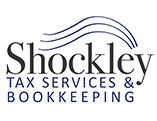
Keep your filing as simple as possible
For people who don’t operate a partnership, filing under a schedule C, Sole Proprietorship is going to present you with the best combination of simplicity and flexibility.
Maximize medical deductions
As a self-employed person, you can deduct health insurance premiums for you and your entire family. You can even deduct these amounts if the policy is not under your business’ name.
Pay attention to self-employment tax
Business that post a profit are also required to pay self-employment tax (also known as SE tax) in addition to income tax. This means you also have to pay Social Security and Medicare taxes.
Paying estimated tax
Most people who earn income that isn’t subject to withholding have to pay quarterly estimated tax payments throughout the year.
Utilize business deductions
Business deductions are generally preferable to itemized deductions for deducting ordinary and necessary business expenses. This will reduce the amount of SE tax you are required to pay.
Deduct your qualified home office
The IRS offers a deduction for some people who work from their homes, but the space must meet the definition of a qualified office in order to be eligible. Part of the home must be used exclusively for the business, and it must also be the main place from which the business is operated.
The tax experts at Shockley Bookkeeping and Taxes are available to help any self-employed person simplify their tax payments and filing. Contact us today to learn more about our full line of tax preparation services.
